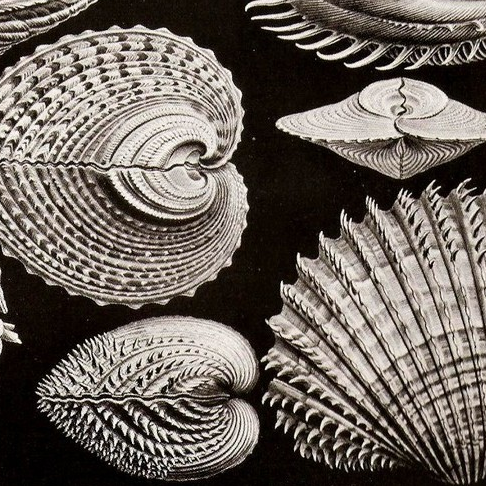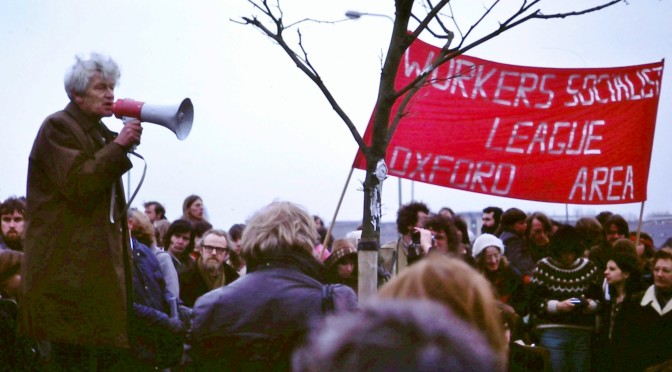Can or should historians be activists? Floor Haalboom and Hans Schouwenburg share their ideas on this dilemma in e-mails which they make available on Shells & Pebbles.
October 1, 2015
Dear Hans,
Did you read Ilja Nieuwland’s reaction to your call for climate change activism by historians of science? Ilja has “fundamental problems” with historians being activists. He argues that a good historian “can never be activist”, and if we ignore this rule “we should seriously doubt whether we can still function as historians.” Historians study the past, not the present, and this is “difficult enough as it is”. Engaging in activism is dangerous, as it damages the integrity of historical work or blemishes a scholar’s good name among colleagues. According to Ilja, the only role of the historian of science is “being an observer of science” and not to meddle with present-day concerns, “however unsatisfying that may be in many respects.”
Many historians will sympathize with Ilja’s concerns. I’ve just finished reading Allan Brandt’s The Cigarette Century on the ‘tobacco wars’ between the cigarette industry and public health in the United States during the twentieth century. In his epilogue, this historian of medicine lays out his own reservations regarding activism against the tobacco industry:
There was […] always a question about my possible availability to testify in a trial on behalf of a plaintiff. Each time I respectfully declined. Certainly, my research confirmed that the industry had conspired over many decades to deny and obscure the deadly risks of its product. […] But […] I did not want my scholarship to be dismissed as ‘advocacy’. The lawyers could use my work as they saw fit. I did not want to become a combatant in the tobacco wars; I much preferred my role as a war correspondent and military historian.
Allan M. Brandt, The Cigarette Century (2009) pp. 494-5
Ilja will nod when reading Brandt’s emphasis on “the autonomy that historians so value to assure that their accounts of the past reflect complexity, subtlety and nuance” (p. 496) – values in danger of being sacrificed when the war correspondent/observer turns into a combatant/activist.
Brandt, however, no longer sticks to this attitude, although he kept it up for years. Eventually, he did decide to become involved in a court case, United States vs. Philip Morris, “the largest civil litigation in the history of American law.” (p. 496) Why? Because the tobacco industry uses medical history to its own ends in the courtroom, in particular by calling in medical historians who have no expertise in the history of cigarettes, but do confirm the industry’s reading of past events. Without any counter arguments the industry’s biased narrative of the past is likely to be accepted by the judge. Brandt feels compelled to step in in order to protect his professional standards rather than sacrificing them.
I’m curious to hear your thoughts on Ilja’s piece!
Floor
October 5, 2015
Hi Floor,
Many thanks for directing my attention to Ilja’s piece. Although I strongly disagree with his argument, I’m glad Ilja expresses his opinion in no uncertain terms. I find your review of Allan Brandt’s The Cigarette Century, on the other hand, far more ambiguous. Your e-mail is open to multiple interpretations; I could discern at least two different views, one naturally academic, the other subtly radical. Let me present you with my two readings of your e-mail. Will you let me know – loudly and clearly – which one you endorse most?
(1) Is your reference to The Cigarette Century a purely intellectual pursuit? Are you just showing that Ilja’s description of our profession is historically contradictory because we are supposed to be critical of whatever someone writes? In that case, I do agree that it is fairly easy to provide examples that problematize his normalized ideal type of the detached historian who”can never be activist”. Historiography clearly shows that our craft has a great tradition of socially and politically engaged research. Think only of the 1970s when a great many prominent historians used social theory – and an awful lot of graphs – to free the working classes from the yoke of capitalism or support any other noble left-wing cause. By the way: I never understood how this programme could disappear so quickly. It seems that when we lost objectivity to postmodernism in the 1990s we also lost our confidence to take a strong political stance…
(2) Do I read between the lines that behind your façade of subtle references and intellectual aloofness there lingers a scientivist in the making? Are you actually using Brandt because you sympathize with, and even draw inspiration from, his move to become involved in the tobacco wars? In that case, we have a lot more in common than Ilja thinks. The question then is: in what cases can we as historians legitimately leave the safe temple of Clio behind and enter the dangerous world of politics and activism? Brandt’s moment only arrived when the integrity of his profession was under attack. Before the tobacco industry’s misuse of medical history he, like Ilja, kept well away from the battlefield because he didn’t want his work to be “dismissed as advocacy”.
On a different note, did you know that my wakeup call was also related to the tobacco wars? After reading Oreskes and Conway’s Merchants of Doubt (2010) – which also deals with the cigarette industry – I strongly felt that the time was ripe to use my knowledge, resources and position as a historian of science to demand attention for the climate problem. In the ‘Emotional Call’ I described how.
To conclude: historians have the historically unfounded gut feeling that our profession demands us to stay aloof from activist endeavors. However, there are instances (e.g. Brandt) when we suddenly abandon these feelings. Floor, has your moment already arrived?
Salute!
Hans
o-o-o
Featured image: Historian E. P. Thompson speaking at an anti-nuclear protest (Source: Wikipedia)


